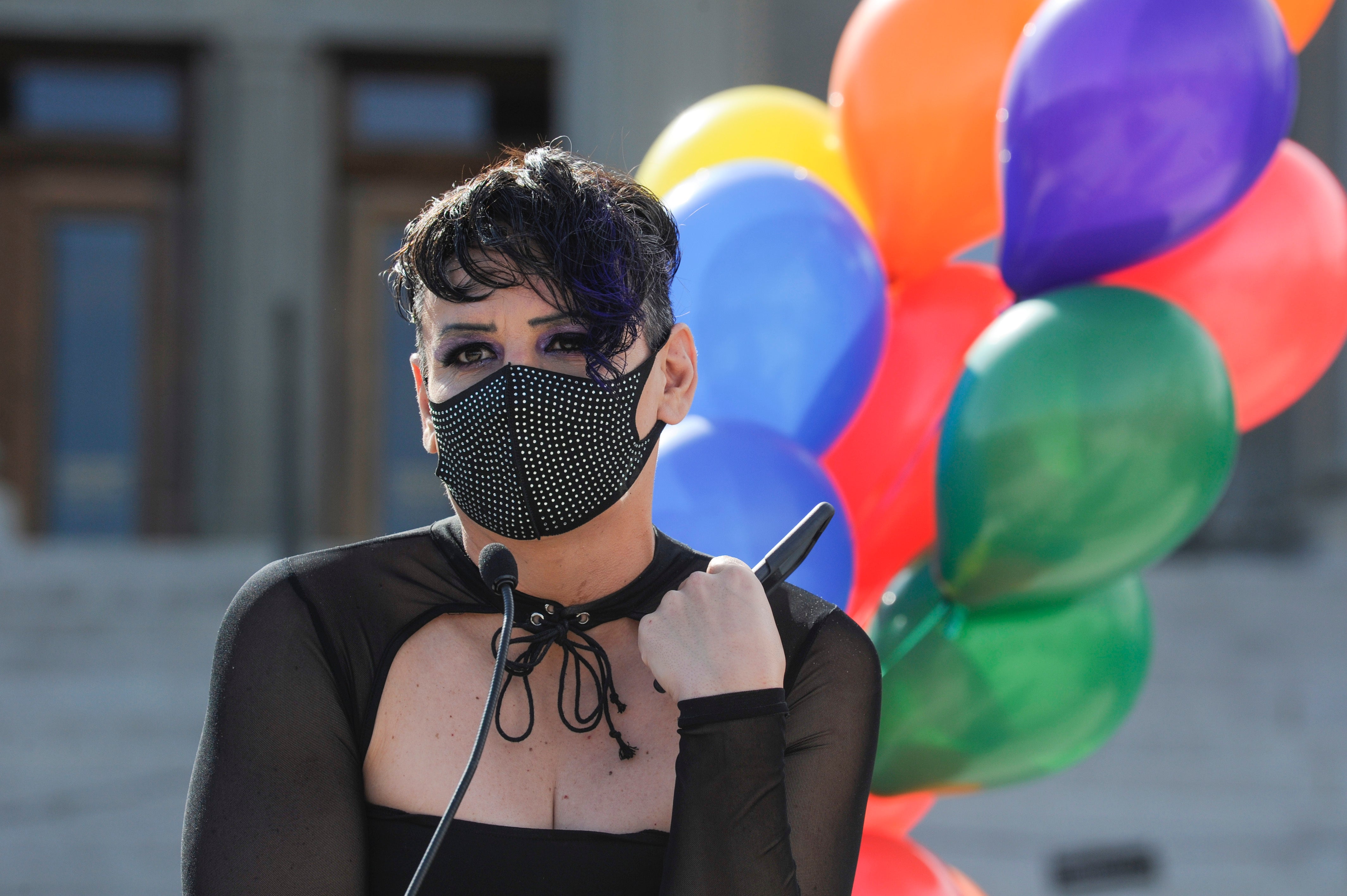Montana LGBT+ advocates sue state over ‘Frankenstein’s monster’ drag ban
The broadly written law amounts to a ‘calculated’ attack against LGBT+ people and unconstitutionally threatens ‘personal, artistic and political expression and speech,’ plaintiffs allege
Your support helps us to tell the story
From reproductive rights to climate change to Big Tech, The Independent is on the ground when the story is developing. Whether it's investigating the financials of Elon Musk's pro-Trump PAC or producing our latest documentary, 'The A Word', which shines a light on the American women fighting for reproductive rights, we know how important it is to parse out the facts from the messaging.
At such a critical moment in US history, we need reporters on the ground. Your donation allows us to keep sending journalists to speak to both sides of the story.
The Independent is trusted by Americans across the entire political spectrum. And unlike many other quality news outlets, we choose not to lock Americans out of our reporting and analysis with paywalls. We believe quality journalism should be available to everyone, paid for by those who can afford it.
Your support makes all the difference.A trans woman who appears to be the first person targeted by a recently enacted Montana law that explicitly bans drag in libraries is among a group of LGBT+ advocates suing the state to overturn the law, which includes the nation’s first outright ban on drag story hours.
Attorneys for the plaintiffs called the legislation “a Frankenstein’s monster” and a “calculated” attack on LGBT+ people that “overshoots this sinister mark” and “threatens teachers, artists, small businesses, and cultural and scientific institutions with criminal and professional sanctions.”
The challengers include a public school teacher who uses colorful costumes in her lessons and a nonprofit group that advocates for LGBT+ people and drag performances. Several community centres, a brewery and a fitness studio also have joined the federal lawsuit filed in US District Court on 6 July, all alleging that the law unconstitutionally targets “personal, artistic and political expression and speech.”
The filing calls the Montana law – which went into immediate effect with Republican Governor Greg Gianforte’s signature on 22 May – “a breathtakingly ambiguous and overbroad bill, motivated by anti-LGBTQ+ animus.”
Adria Jawort, a Billings-based author who has written extensively about the state’s LGBT+ history and far-right extremism, was a scheduled guest speaker on the subject at the Butte Public Library last month. But a county attorney recommended that the library cancel her appearance, citing House Bill 359.
Her lecture “was canceled because she is transgender, because she wears makeup, and/or because she intended to speak about LGBTQ+ issues,” according to the lawsuit. “No matter what combination of potential factors led to the cancellation, the cancellation violated her constitutional rights to free speech and equal protection”.
“This is exactly what my fear of these unconstitutional bills motivated by bigotry would do: be used to target transgender and gender nonconforming people,” Ms Jawort toldThe Independent earlier this year. “Now here we are with me being silenced as predicted.”
Following the law’s passage, venues and performances have canceled drag performances out of fear of liability under the law, which could impose penalties of up $5,000, according to the Imperial Sovereign Court of the State of Montana, a statewide LGBT+ advocacy group and drag performance organisation.
Rachel Corcoran, a Montana educator who uses costumes to teach special education students in Billings would be considered a “drag queen” or “drag king” participating in “drag story hour” under the law, according to the lawsuit.
“The legislature was so worked up about the perceived threat of drag story hours that it didn’t consider the collateral damage,” Ms Corcoran said in a statement shared with The Independent. “Now I can be prosecuted and lose my teaching certificate for showing creativity in the classroom.”
The Independent has requested comment from the office of Montana’s attorney general, who is named as a defendant in the complaint.

The lawsuit follows several federal court orders striking down similar laws in other states.
In Tennessee, a federal judge temporarily blocked a measure that restricts public drag performances, arguing that the law likely violates the First Amendment rights of performers.
A similar measure was blocked by a federal judge in Florida, similarly citing likely First Amendment violations.
Those federal court victories for LGBT+ advocates follow a wave of legislation – parallel to growing threats – specifically aimed at drag performers and the venues that host them.
Hundreds of bills aimed at LGBT+ people, particularly young trans people, have been filed in nearly every state within the last several years. Within the first five months of 2023 alone, state lawmakers had introduced more than 500 bills impacting LGBT+ people, including 220 bills specifically restricting the rights of trans and nonbinary Americans, according to an analysis from the Human Rights Campaign.
From June 2022 to May 2023, protests and threats of violence against drag performers accelerated across the US, according to a recent report from the Institute for Strategic Dialogue.
Such threats have been carried not only by neo-fascist gangs like the Proud Boys, whose members have repeatedly sought to shut down drag events across the country, but also a constellation of disparate far-right groups united against LGBT+ people and events, the report found.
The report discovered 203 on- and offline threatening incidents within the last year, nearly half of which targeted drag queen story hours in libraries and bookstores. Other incidents targeted drag shows, drag brunches and drag bingo games.
Proud Boys chapters targeted 60 such events, with more than half resulting in physical and verbal clashes, the report found.



Join our commenting forum
Join thought-provoking conversations, follow other Independent readers and see their replies
Comments